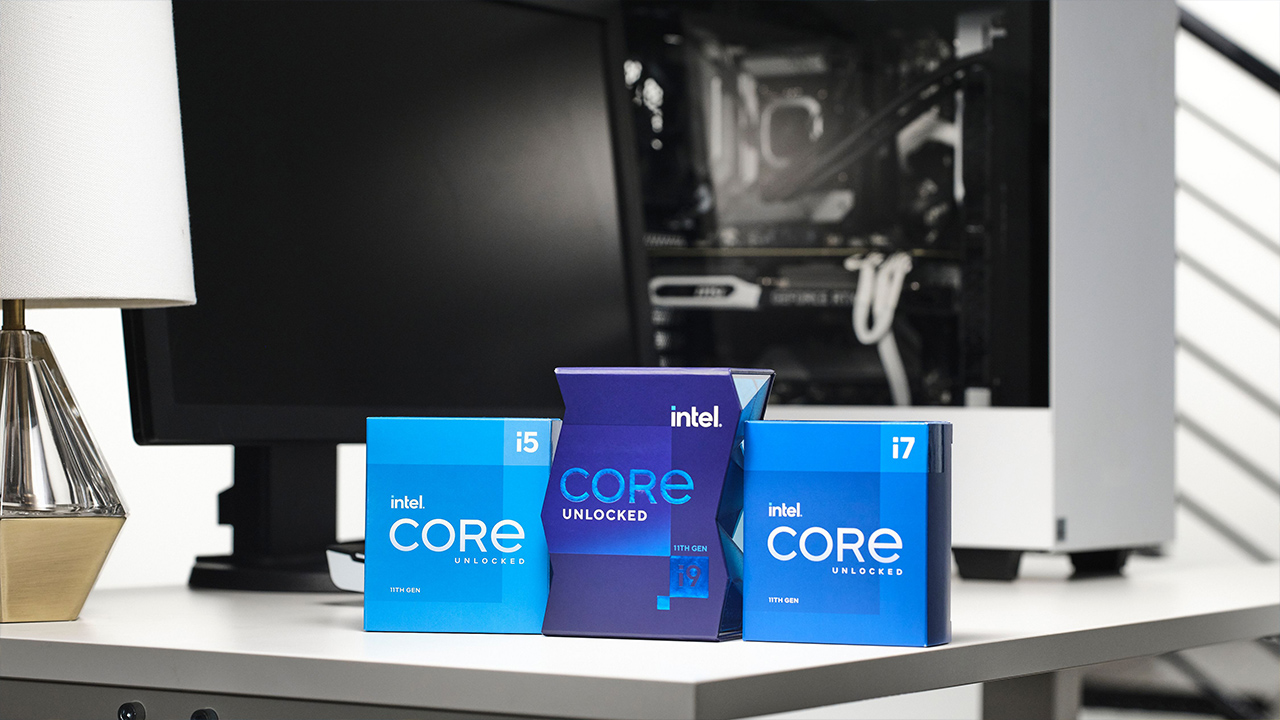Serious Hardware
Intel goes back to step forward
Intel has announced the new 11th generation Core processors, stepping back from 10nm to 14nm — but with a trick up its sleeve, writes BRYAN TURNER.
Intel this week unveiled details of its new 11th generation Core processors, named Rocked Lake. While most of the information was out there, some key new details were revealed, which piqued the interest of high-performance computing users. These included clock speeds, prices, and — most notably — performance details.
Yes, there is still an elephant in the room: Apple dropped Intel because it could make CPUs that use a 5nm process, and Intel is still using the 14nm process. Its saving grace, however, is it says it has tweaked the architecture to optimise for better performance without having to change its transistor manufacture process. It achieved this by reimplementing the new Cypress Cove architecture, which consists of Ice Lake’s 10nm process, but ported back to 14nm.
This size increase also decreases the number of cores, cutting down from 10-core, 20-thread systems to an 8-core, 16-thread configuration instead. Reading between the transistor lines suggests these CPUs are likely going to run hotter than their predecessors, so better cooling equipment will be needed when they’re pushed to the max.
Although increasing the size of the transistors may sound counter-intuitive, Intel says this increases the number of instructions that can be completed in a cycle. The real-life provided example is a boost in mathematical transforms by 19%, compared to the previous generation. In gaming, users can expect an 8-14% increase in frames per second when moving from the i9-10900K to the i9-11900K.
The entry-level Core i3 processors are not going to be part of this line-up, as Intel opted to refresh the current 10th generation offering with six new options.
Intel provided the following information on specifications and pricing:
- i9-11900K — up to 3.5 GHz base / 5.3 GHz boost ($539)
- i9-11900KF — up to 3.5 GHz base / 5.3 GHz boost ($513)
- i9-11900 — up to 2.5 GHz base / 5.2 GHz boost ($439)
- i9-11900F — up to 3.5 GHz base / 5.2 GHz boost ($422)
- i9-1900T — up to 1.5 GHz base / 4.9 GHz boost ($439)
- i7-11700K — up to 3.6 GHz base / 5.0 GHz boost ($399)
- i7-11700KF — up to 3.6 GHz base / 5.0 GHz boost ($374)
- i7-11700 — up to 2.5 GHz base / 4.9 GHz boost ($323)
- i7-11700F — up to 2.5 GHz base / 4.9 GHz boost ($298)
- i7-11700T — up to 1.4 GHz base / 4.6 GHz boost ($323)
- i5-11600K — up to 3.9 GHz base / 4.9 GHz boost ($262)
- i5-11600KF — up to 3.9 GHz base / 4.9 GHz boost ($237)
- i5-11600 — up to 2.8 GHz base / 4.8 GHz boost ($213)
- i5-11600T — up to 1.7 GHz base / 4.1 GHz boost ($213)
- i5-11500 — up to 2.7 GHz base / 4.6 GHz boost ($192)
- i5-11500T — up to 1.5 GHz base / 3.9 GHz boost ($192)
- i5-11400 — up to 2.6 GHz base / 4.4 GHz boost ($182)
- i5-11400F — up to 2.7 GHz base / 4.4 GHz boost ($157)
- i5-11400T — up to 1.3 GHz base / 3.7 GHz boost ($182)
- i3-10325 — up to 3.9 GHz base / 4.7 GHz boost ($154)
- i3-10305 — up to 3.8 GHz base / 4.5 GHz boost ($143)
- i3-10305T — up to 3.0 GHz base / 4.0 GHz boost ($143)
- i3-10105 — up to 3.7 GHz base / 4.4 GHz boost ($122)
- i3-10105F — up to 3.9 GHz base / 4.4 GHz boost ($97)
- i3-10105T — up to 3.0 GHz base / 3.9 GHz boost ($122)
For more information on Intel’s new processors, visit Intel’s product page here.

















